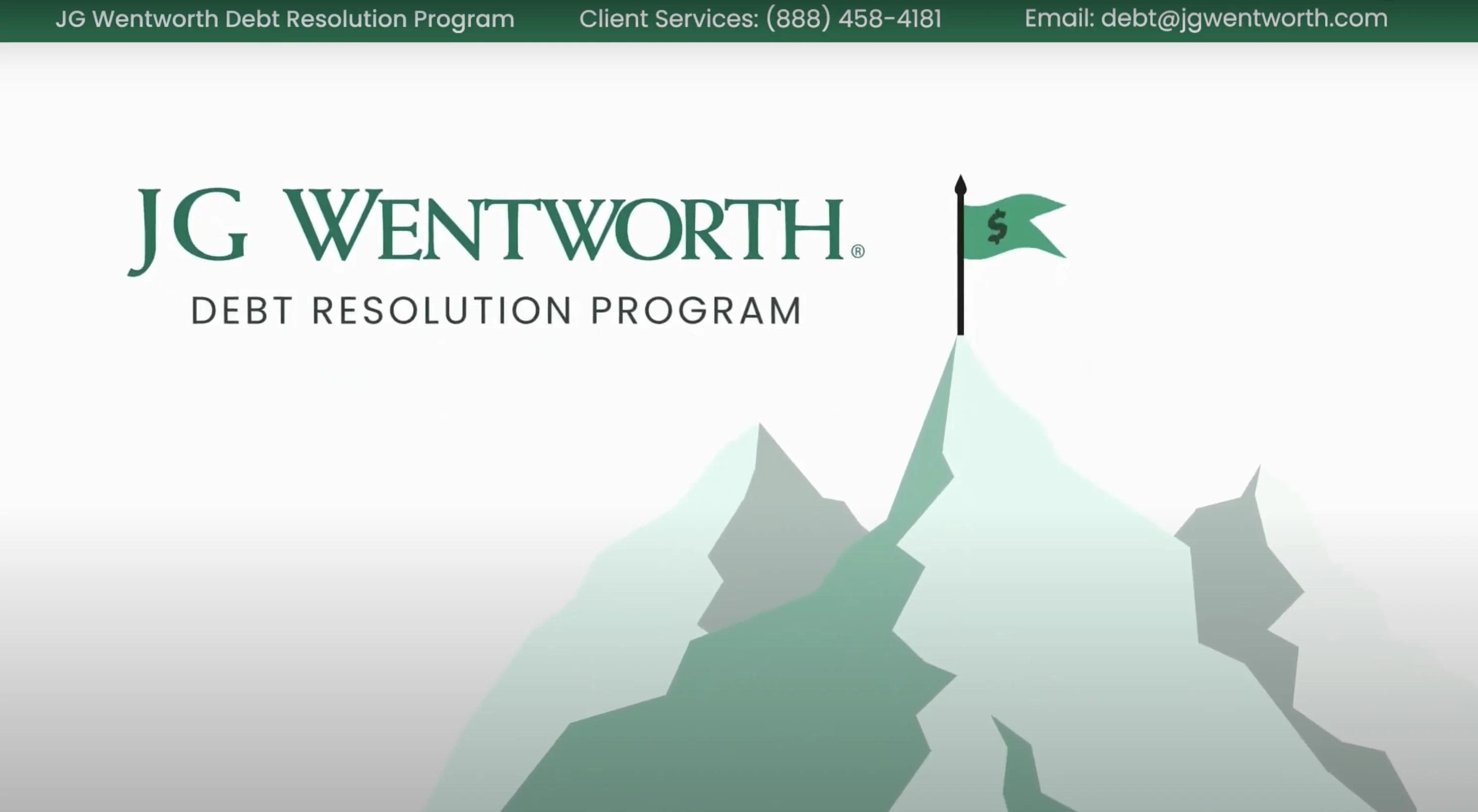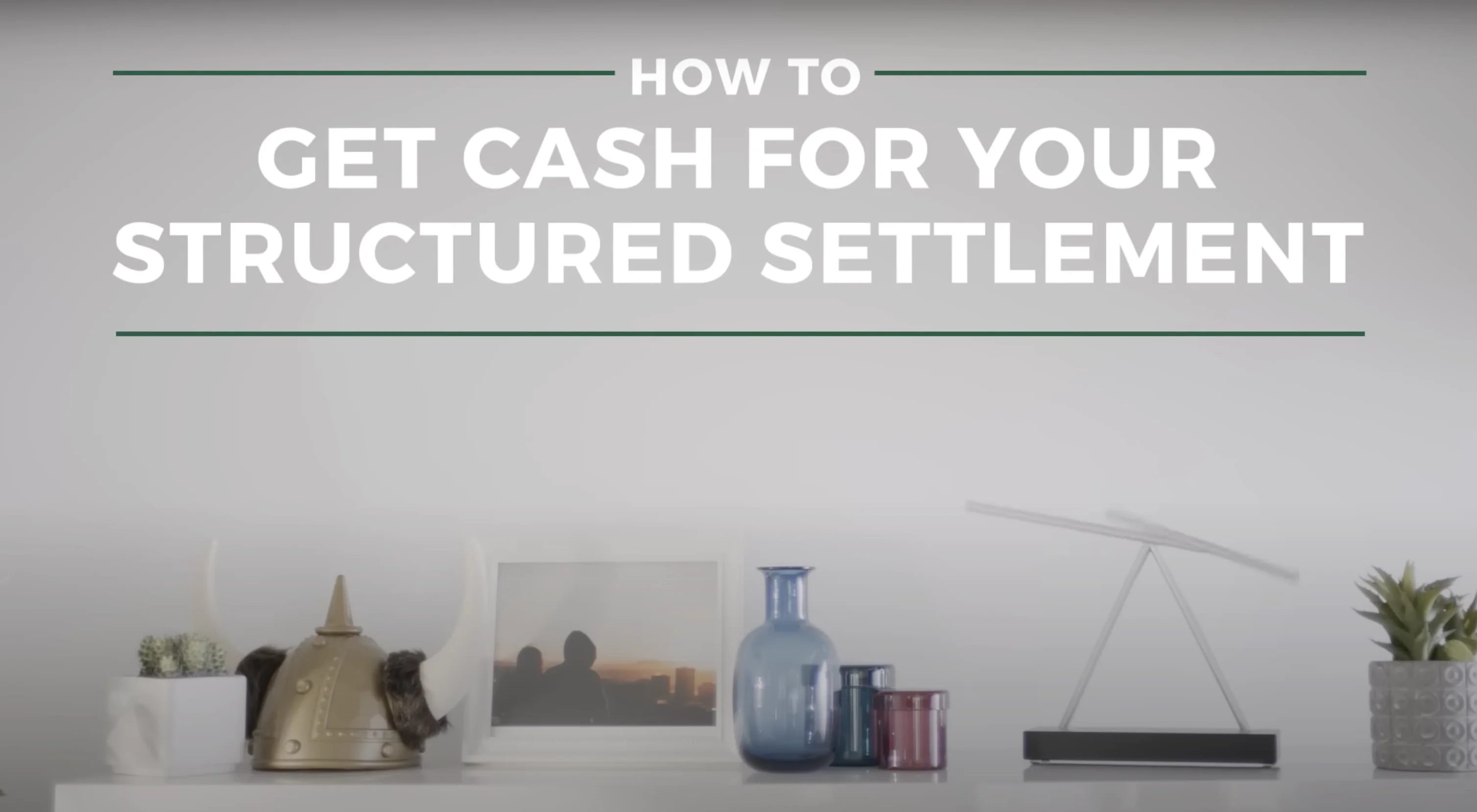Empowering you
to thrive financially
to thrive financially
Sell your payments at the best price, guaranteed*
Sell all, or a portion, of your structured settlement payments to get the cash you need.
Get Started
for their structured settlement
and used it
for a new car.
Debt relief, personalized
Consolidate debt from major credit cards, retail cards, personal and unsecured loans – with just a single monthly program payment.
Get StartedLoan options for you
Get matched with a loan offer in minutes! Checking your options with us is secure and will NOT effect your credit score.
Get Started
Get the cash you need before your lawsuit settles
Settlements can take longer than you think. We'll connect you with a partner that will help you get a cash advance. JG Wentworth does not provide pre-settlement funding services. All leads are brokered to unaffiliated third party providers by Peachtree Funding Northeast, LLC.
Get Started
Get cash from your annuity before it matures
Dealing with unexpected expenses? We can help you get cash from your annuity when you need it most.
Get Started
Maximize your lottery winnings
Get confidential and personalized options to maximize your lottery or casino prize winnings.
Get Started
Our numbers speak for themselves:
150K+
JG Wentworth customers
30 years
Of experience
A+
BBB Rating
Explore Trending Articles
We’ve helped our customers in a Big Way










FAQs
For over thirty years, our company has happily provided customized solutions and personal support to customers in need of a fresh financial start. From Structured Settlement Purchasing to Debt Resolution Programs (and plenty of other options), our services have grown with the ever-changing needs of our customers.
If life has taken an unpredictable turn and you need an influx of money without waiting months (or even years) for it, we’re here to help! We can purchase some or all of your upcoming structured settlement payments (at the best prices in the industry, guaranteed!) for a lump sum of cash when you need it most.
Absolutely! Our Debt Relief Program empowers our Debt Specialists to negotiate with your creditors on your behalf to lower the overall balances that you owe. By streamlining your bills into one simple monthly payment, our customers are able to resolve their debt in as little as 24-48 months!
Of course! We understand that every customer has unique challenges to deal with, and we’re ready to help. That’s why we invite you to call us anytime for a free consultation from one of our specialists. Not only are we happy to explain our services and answer all your questions, but we’re also excited to learn about your financial goals, offer personalized solutions created just for you and support you through every step of your journey.
We’ve got you! Years of five-star reviews and amazing word-of-mouth have taught us that our customers love working with companies that go above and beyond to serve and support them, just like we do. See more options in JG Wentworth Marketplace, an all-in-one gateway to providers who offer the services you need with the same exemplary standard of support that you’ve come to expect from JG Wentworth. From Home Services and Insurance Coverage to Credit Repair and Debt Consolidation, we’ve assembled an all-star team of industry leaders that can handle your needs with a smile.
*Best Price Guarantee disclaimers: We will provide you with a check for $1,000 if we cannot beat an offer from another payment purchasing company. In order to receive the $1,000, the following conditions must be met: 1. you must provide us with a quote in writing from another payment purchasing company, signed by an authorized representative, and dated within three business days of the date submitted to us “Qualifying Quote”; 2. if we are unable to beat the competitor’s quoted purchase price, we will provide you with written notice within three business days of our receipt of their Qualifying Quote; and 3. the $1,000 check shall be due and payable to you upon our receipt of written confirmation, satisfactory to us, of the funding of the transaction at the quoted purchase price, and that funding must occur within ninety days after you receive written notification from us that we cannot beat their Qualifying Quote. Limit one Best Price Guarantee offer per customer.







